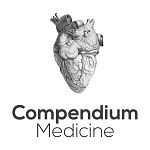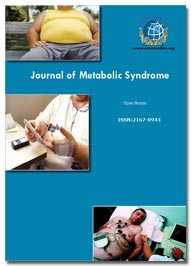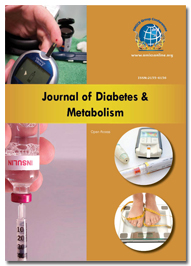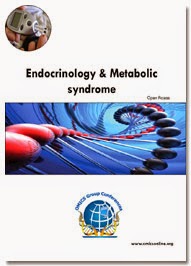Theme: Innovative Technologies and Treatments to overcome Metabolic Syndrome and offer lasting lifestyle
Metabolic Syndrome 2017
On behalf of ConferenceSeries Ltd Scientific Committee Members, we invite the worldwide global audience and presenters to participate at the 2nd International Conference on Metabolic Syndrome which is to be held in London, UK during August 10-11, 2017. Special interest and theme of the conference is “Innovative Technologies and Treatments to overcome Metabolic Syndrome and offer lasting lifestyle”.
Metabolic syndrome is a clustering of abnormalities characterized by the association of insulin resistance/type 2 diabetes, hyperlipidaemia, hypertension, and abdominal obesity. Advances in scientific research, the increasing prevalence of obesity, and the disorder's role in contributing to cardiovascular disease and diabetes are fuelling interest in metabolic syndrome. The most important risk factors are diet, genetics, stress, aging, sedentary behaviour or low physical activity, disrupted chronobiology/sleep, mood disorders/psychotropic medication use, and excessive alcohol use.
Recently, the Consensus Panel International Diabetes Federation (IDF) proposed a new definition for the Metabolic Syndrome that emphasizes the importance of central obesity. The European Global Cardiometabolic Risk Profile in Patients with Hypertension Disease survey investigated the cardiometabolic risk profile in adult patients with hypertension across 289 locations in four European regions. A study assessing data collected between 1997 and 2003 reported that the prevalence of obesity, defined as body mass index, varied between 6% and 20%, with higher prevalence in Central and Eastern European countries and lower values in France, Italy and some Scandinavian countries. With the exception of the Italian, Norwegian and UK cohorts, the prevalence of obesity was much higher in the European populations that were reported in the most recent review addressing the distribution of obesity in Europe. National U.S. survey data suggest the Metabolic Syndrome affects about one-quarter of adults aged 20 to 70 years, with the prevalence approaching 50% in the elderly.
ConferenceSeries Ltd organizes a conference series of 1000+ Global Events inclusive of 300+ Conferences, 500+ Upcoming and Previous Symposiums and Workshops in USA, Europe & Asia with support from 1000 more scientific societies and publishes 700+ Open access journals which contains over 30000 eminent personalities, reputed scientists as editorial board members
Why to attend?
Metabolic Syndrome 2017 highlights the theme “Innovative Technologies and Treatments to overcome Metabolic Syndrome and offer lasting lifestyle” Which focus on the latest advancements in prevention and treatment cure of various metabolic diseases which are occurring due to one or another metabolic malfunctioning.
Metabolic Syndrome 2017 provides two days robust discussions on methods and strategies related to diagnosis, prevention and management of metabolic disorders as well as explore new ideas and concepts on a global scale. This two day event provides a perfect platform for leading scientists, researchers, scholars, practitioners, health care experts, treatment providers, equipment and diagnostic tools manufacturers/vendors, to gain knowledge about the latest advancements in clinical research and health diagnostics within the respective field and also encourages new innovations, research ideas around the globe.
Target Audience:
- Endocrinologists
- Diabetologists
- Researchers
- Practitioners
- Academicians
- Scholars
- Students
- Business Professionals
Track 1: Metabolic Syndrome
Metabolic syndrome is a medical disorder that may lead to cardiovascular disease and diabetes. Metabolic syndrome is a Group of conditions increased blood pressure, a high blood sugar level, excess body fat around the waist and abnormal cholesterol levels that occur together, increasing your risk of heart disease, stroke and diabetes. Genetic factors influence each individual component of the syndrome, and the syndrome itself. A family history that includes type 2 diabetes, hypertension, and early heart disease greatly increases the chance that an individual will develop the metabolic syndrome. Most of the disorders associated with metabolic syndrome have no symptoms, although a large waist circumference is a visible sign. If your blood sugar is very high, you might experience signs and symptoms of diabetes including increased thirst and urination, fatigue, and blurred vision.
Related Conferences: Metabolic Syndromes Conferences | Obesity Conferences | Endocrine Conferences | Diabetes Conferences | Conferences Series LLC
2nd International Conference on Metabolic Syndrome August 10-11, 2017 London, UK; 16th Global Diabetes Conference & Medicare Expo, March 22-23 2017, Rome Italy; 18th European Diabetes Congress July 17-18, 2017 Lisbon, Portugal; 9th Global Congress on Endocrine Disorders and Therapies, August 24-25, 2017 Toronto, Canada; 6th International Conference on Diabetes and Endocrinology December 05-07, 2016 Dallas, USA; 9th International DIP Symposium on Diabetes, Hypertension, Metabolic Syndrome & Pregnancy March 8-12, 2017 Barcelona, Spain; 14th Annual World Congress on Insulin Resistance, Diabetes, and Cardiovascular Disease 2016 (WCIRDC 2016) December 1-3, 2016 California, United States; ATTD 2017 - Advanced Technologies & Treatments for Diabetes, February 15-18 2017, Paris, France; Society For Endocrinology, Metabolism And Diabetes Of South Africa 2017 (SEMDSA 2017) May 5-7, 2017 Johannesburg, South Africa; AICR 2016 Research Conference on Nutrition, Physical Activity, Obesity, and Cancer November 14-16, 2016 North Bethesda
Related Societies:
Philippine Society of Endocrinology and Metabolism, Philippines; Society of Diabetes, Nutrition & Metabolic Diseases, Romania; Society of Endocrine, Metabolism & Diabetes of Southern Africa, South Africa; Austrian Society for Endocrinology and Metabolism, Austria; Hungarian Society of Endocrinology and Metabolism, Hungary; Turkey Society of Endocrinology and Metabolism, Turkey
Track 2: Endocrine Disorders
Endocrine glands are a group of glands in the body which secrete hormones. The endocrine system influences how your heart beats, how your bones and tissues grow, even your ability to make a baby. It plays a vital role in whether or not you develop diabetes, thyroid disease, growth disorders, sexual dysfunction, and a host of other hormone-related disorders. Endocrine disorders are typically grouped into two categories:
- Endocrine disease that results when a gland produces too much or too little of an endocrine hormone, called a hormonal imbalance.
- Endocrine disease due to the development of lesions (such as nodules or tumors) in the endocrine system, which may or may not affect hormone levels.
Related Conferences: Metabolic Syndromes Conferences | Obesity Conferences | Endocrine Conferences | Diabetes Conferences | Conferences Series LLC
6th International Conference on Diabetes and Endocrinology December 05-07, 2016 Dallas, USA; 2nd International Conference on Metabolic Syndrome August 10-11, 2017 London, UK;16th Global Diabetes Conference & Medicare Expo, March 22-23 2017, Rome Italy; 18th European Diabetes Congress July 17-18, 2017 Lisbon, Portugal; 9th Global Congress on Endocrine Disorders and Therapies, August 24-25, 2017 Toronto, Canada; 9th International DIP Symposium on Diabetes, Hypertension, Metabolic Syndrome & Pregnancy March 8-12, 2017 Barcelona, Spain; Society For Endocrinology, Metabolism And Diabetes Of South Africa 2017 (SEMDSA 2017) May 5-7, 2017 Johannesburg, South Africa; AICR 2016 Research Conference on Nutrition, Physical Activity, Obesity, and Cancer November 14-16, 2016 North Bethesda; 14th Annual World Congress on Insulin Resistance, Diabetes, and Cardiovascular Disease 2016 (WCIRDC 2016) December 1-3, 2016 California, United States; ATTD 2017 - Advanced Technologies & Treatments for Diabetes, February 15-18 2017, Paris, France
Related Societies:
Endocrine Society of India, India; American Association of Clinical Endocrinologists, USA; Society for Endocrinology, UK; Endocrine Society, USA; European Society of Endocrinology, UK; The American Association of Endocrine Surgeons, USA; Society for Reproductive Endocrinology and Infertility, USA; British Association of Endocrine and Thyroid Surgeons, UK; European Thyroid Association, Germany
Track 3: Cardiovascular Disorders
Cardiovascular disease refers to more than one disease of the circulatory system including the heart and blood vessels, whether the blood vessels are affecting the lungs, the brain, kidneys or other parts of the body. Coronary artery disease, stroke, and peripheral artery disease involve atherosclerosis. This may be caused by high blood pressure, smoking, diabetes, lack of exercise, obesity, high blood cholesterol, poor diet, and excessive alcohol consumption, among others. High blood pressure results in 13% of CVD deaths, while tobacco results in 9%, diabetes 6%, lack of exercise 6% and obesity 5%. The effect of the use of aspirin in people who are otherwise healthy is of unclear benefit. The United States Preventive Services Task Force recommends against its use for prevention in women less than 55 and men less than 45 years old; however, in those who are older it is recommends in some individuals. Treatment of those who have CVD improves outcomes. Cardiovascular diseases are the leading cause of death globally. Coronary artery disease and stroke account for 80% of CVD deaths in males and 75% of CVD deaths in females. Most cardiovascular disease affects older adults. In the United States 11% of people between 20 and 40 have CVD, while 37% between 40 and 60, 71% of people between 60 and 80, and 85% of people over 80 have CVD.
Related Conferences: Metabolic Syndromes Conferences | Obesity Conferences | Endocrine Conferences | Diabetes Conferences | Conferences Series LLC
9th Global Congress on Endocrine Disorders and Therapies, August 24-25, 2017 Toronto, Canada; 6th International Conference on Diabetes and Endocrinology December 05-07, 2016 Dallas, USA; 2nd International Conference on Metabolic Syndrome August 10-11, 2017 London, UK;16th Global Diabetes Conference & Medicare Expo, March 22-23 2017, Rome Italy; 18th European Diabetes Congress July 17-18, 2017 Lisbon, Portugal; 9th International DIP Symposium on Diabetes, Hypertension, Metabolic Syndrome & Pregnancy March 8-12, 2017 Barcelona, Spain; Society For Endocrinology, Metabolism And Diabetes Of South Africa 2017 (SEMDSA 2017) May 5-7, 2017 Johannesburg, South Africa; AICR 2016 Research Conference on Nutrition, Physical Activity, Obesity, and Cancer November 14-16, 2016 North Bethesda; ATTD 2017 - Advanced Technologies & Treatments for Diabetes, February 15-18 2017, Paris, France; 14th Annual World Congress on Insulin Resistance, Diabetes, and Cardiovascular Disease 2016 (WCIRDC 2016) December 1-3, 2016 California, United States
Related Societies:
European Society of Cardiology, Europe; American Society of Hypertension, USA; Brazilian Society of Cardiology, Brazil; Cardiac Society of Australia and New Zealand, Australia; Ecuadorian Society of Cardiology, Ecuador; Colombian Society of Cardiology and Cardiovascular Surgery, Colombia; National Heart Association of Malaysia, Malaysia; Mexican Society of Cardiology, Mexico
Track 4: Insulin Resistance Syndrome
Insulin resistance is a condition in which the cells of the body become resistant to the hormone insulin. Insulin resistance may be part of the metabolic syndrome, and it has been associated with higher risk of developing heart disease. Insulin resistance precedes the development of type 2 diabetes (T2D).Insulin resistance is associated with other medical conditions, including liver, arteriosclerosis, acanthuses, skin tags, and reproductive abnormalities in women. When the body produces insulin under conditions of insulin resistance, the cells in the body are resistant to the insulin and are unable to use it as effectively, leading to high blood sugar. Beta cells in the pancreas subsequently increase their production of insulin, further contributing to a high blood insulin level. This often remains undetected and can contribute to a diagnosis of Type 2 diabetes or latent autoimmune diabetes of adults.
Related Conferences: Metabolic Syndromes Conferences | Obesity Conferences | Endocrine Conferences | Diabetes Conferences | Conferences Series LLC
2nd International Conference on Metabolic Syndrome August 10-11, 2017 London, UK; 9th Global Congress on Endocrine Disorders and Therapies, August 24-25, 2017 Toronto, Canada; 6th International Conference on Diabetes and Endocrinology December 05-07, 2016 Dallas, USA; 16th Global Diabetes Conference & Medicare Expo, March 22-23 2017, Rome Italy; 18th European Diabetes Congress July 17-18, 2017 Lisbon, Portugal; 14th Annual World Congress on Insulin Resistance, Diabetes, and Cardiovascular Disease 2016 (WCIRDC 2016) December 1-3, 2016 California, United States; 9th International DIP Symposium on Diabetes, Hypertension, Metabolic Syndrome & Pregnancy March 8-12, 2017 Barcelona, Spain; Society For Endocrinology, Metabolism And Diabetes Of South Africa 2017 (SEMDSA 2017) May 5-7, 2017 Johannesburg, South Africa; AICR 2016 Research Conference on Nutrition, Physical Activity, Obesity, and Cancer November 14-16, 2016 North Bethesda; ATTD 2017 - Advanced Technologies & Treatments for Diabetes, February 15-18 2017, Paris, France
Related Societies:
Diabetic Foot Society of India, India; Diabetes Society of the Chinese Medical Association, China; Fiji National Diabetes Foundation, Fiji; Italian Society of Diabetology, Italy; American Diabetes Association, USA; German Diabetes Union, Germany; Mexico Diabetic Federation, Mexico; French Diabetics Association, France; Netherlands Diabetes Association, Netherlands;
Track 5: Pediatric Metabolic Syndrome
A metabolic disorder occurs when abnormal chemical reactions in the human body disrupt metabolism. When this happens, the patient may have too much of some substances, or too little of others, which are needed to stay healthy. Metabolic disorders or inborn errors of metabolism (IEM) result from a block (partial or complete) to an essential pathway in the body's metabolism. Childhood obesity has contributed to an increased incidence of type 2 diabetes mellitus and metabolic syndrome among children. Disorders in metabolism can be inherited, in which case they are also known as inborn errors of metabolism. Inherited metabolic disorders may affect about 1 in 1,000 to 2,500 new borns. In most inherited metabolic disorders, a single enzyme is either not produced by the body at all or is produced in a form that doesn't work. The missing enzyme is like an absentee worker on the assembly line. Depending on that enzyme's job, its absence means toxic chemicals may build up, or an essential product may not be produced.
Related Conferences: Metabolic Syndromes Conferences | Obesity Conferences | Endocrine Conferences | Diabetes Conferences | Conferences Series LLC
18th European Diabetes Congress July 17-18, 2017 Lisbon, Portugal; 6th International Conference on Diabetes and Endocrinology December 05-07, 2016 Dallas, USA; 2nd International Conference on Metabolic Syndrome August 10-11, 2017 London, UK; 9th Global Congress on Endocrine Disorders and Therapies, August 24-25, 2017 Toronto, Canada; 16th Global Diabetes Conference & Medicare Expo, March 22-23 2017, Rome Italy; Society For Endocrinology, Metabolism And Diabetes Of South Africa 2017 (SEMDSA 2017) May 5-7, 2017 Johannesburg, South Africa; 9th International DIP Symposium on Diabetes, Hypertension, Metabolic Syndrome & Pregnancy March 8-12, 2017 Barcelona, Spain; AICR 2016 Research Conference on Nutrition, Physical Activity, Obesity, and Cancer November 14-16, 2016 North Bethesda; ATTD 2017 - Advanced Technologies & Treatments for Diabetes, February 15-18 2017, Paris, France; 14th Annual World Congress on Insulin Resistance, Diabetes, and Cardiovascular Disease 2016 (WCIRDC 2016) December 1-3, 2016 California, United States
Related Societies:
Pediatric Endocrinology Nursing Society, USA; Pediatric Endocrine Society, USA; European Society for Paediatric Endocrinology, UK; Pediatric Endocrinology and Diabetes Associates, USA; Society for the Study of Inborn Errors of Metabolism(SSIEM), London; Society for Inherited Metabolic Disorders(SIMD), USA
Track 6: Obesity, Diabetes and Metabolism
Diabetes is one of the most challenging health problems in the 21st century and one of the most common non-communicable diseases globally. It is the 4th or 5th leading cause of death in most high-income countries, with ~366 million diabetics in 2011 and an estimated 552 million in 2030. On the other hand, obesity has also become a world-wide epidemic. Obesity is a risk factor for the development of insulin resistance, with pancreatic beta cells compensating for insulin resistance by augmenting insulin secretion. The failure of beta-cells is believed to cause pre-diabetes, a condition that can lead to diabetes. " Approximately 85% of people with diabetes are type 2, and of these, 90% are obese or overweight. Diabetes & obesity are major contributors to various other chronic diseases such as coronary artery diseases, myocardial infarction, hypertension, dyslipidemia and a number of other complicated disorders mounting evidence shows that a Mediterranean style-diet may be useful in preventing and treating chronic diseases related to mild chronic inflammation such as visceral (abdominal) obesity, metabolic syndrome, and Type 2 diabetes.
Related Conferences: Metabolic Syndromes Conferences | Obesity Conferences | Endocrine Conferences | Diabetes Conferences | Conferences Series LLC
9th Global Congress on Endocrine Disorders and Therapies, August 24-25, 2017 Toronto, Canada; 2nd International Conference on Metabolic Syndrome August 10-11, 2017 London, UK; 18th European Diabetes Congress July 17-18, 2017 Lisbon, Portugal; 6th International Conference on Diabetes and Endocrinology December 05-07, 2016 Dallas, USA; 16th Global Diabetes Conference & Medicare Expo, March 22-23 2017, Rome Italy; Society For Endocrinology, Metabolism And Diabetes Of South Africa 2017 (SEMDSA 2017) May 5-7, 2017 Johannesburg, South Africa; 9th International DIP Symposium on Diabetes, Hypertension, Metabolic Syndrome & Pregnancy March 8-12, 2017 Barcelona, Spain; ATTD 2017 - Advanced Technologies & Treatments for Diabetes, February 15-18 2017, Paris, France; 14th Annual World Congress on Insulin Resistance, Diabetes, and Cardiovascular Disease 2016 (WCIRDC 2016) December 1-3, 2016 California, United States; AICR 2016 Research Conference on Nutrition, Physical Activity, Obesity, and Cancer November 14-16, 2016 North Bethesda
Related Societies:
Egyptian Association of Endocrinology, Diabetes and Atherosclerosis, Egypt; Hungarian Society of Endocrinology and Metabolism, Hungary; Egyptian Society of Endocrinology and Obesity, Egypt; Portuguese Society of Endocrinology, Diabetes and Metabolism, Portugal; Diabetic Foot Society of India, India; Society of Endocrine, Metabolism & Diabetes of Southern Africa, South Africa
Track 7: Oxidative Stress and Inflammation in the Metabolic Syndromes
Oxidative stress results due to disturbed equilibrium between pro oxidants and antioxidants and play a role in pathophysiology of Diabetes and Cardiovascular diseases. Inflammation is the body's attempt at self-protection; the aim being to remove harmful stimuli, including damaged cells, irritants, or pathogens - and begin the healing process. Obesity and its comorbidities, including type 2 diabetes mellitus and cardiovascular disease, are associated with a state of chronic low-grade inflammation that can be detected both systemically and within specific tissues. Areas of active investigation focus on the molecular bases of metabolic inflammation and potential pathogenic roles in insulin resistance, diabetes, and cardiovascular disease. An increased accumulation of macrophages occurring in obese adipose tissue has emerged as a key process in metabolic inflammation. Apparently, metabolic overload evokes stress reactions, such as oxidative, inflammatory, organelle and cell hypertrophy, generating vicious cycles. Adipocyte hypertrophy, through physical reasons, facilitates cell rupture, what will evoke an inflammatory reaction.
Related Conferences: Metabolic Syndromes Conferences | Obesity Conferences | Endocrine Conferences | Diabetes Conferences | Conferences Series LLC
18th European Diabetes Congress July 17-18, 2017 Lisbon, Portugal; 6th International Conference on Diabetes and Endocrinology December 05-07, 2016 Dallas, USA; 9th Global Congress on Endocrine Disorders and Therapies, August 24-25, 2017 Toronto, Canada; 2nd International Conference on Metabolic Syndrome August 10-11, 2017 London, UK; 16th Global Diabetes Conference & Medicare Expo, March 22-23 2017, Rome Italy; Society For Endocrinology, Metabolism And Diabetes Of South Africa 2017 (SEMDSA 2017) May 5-7, 2017 Johannesburg, South Africa; 9th International DIP Symposium on Diabetes, Hypertension, Metabolic Syndrome & Pregnancy March 8-12, 2017 Barcelona, Spain; ATTD 2017 - Advanced Technologies & Treatments for Diabetes, February 15-18 2017, Paris, France; AICR 2016 Research Conference on Nutrition, Physical Activity, Obesity, and Cancer November 14-16, 2016 North Bethesda; 14th Annual World Congress on Insulin Resistance, Diabetes, and Cardiovascular Disease 2016 (WCIRDC 2016) December 1-3, 2016 California, United States
Related Societies:
Egyptian Society of Endocrinology and Obesity, Egypt; Portuguese Society of Endocrinology, Diabetes and Metabolism, Portugal; Netherlands Diabetes Association, Netherlands; Diabetic Foot Society of India, India; Diabetes Society of the Chinese Medical Association, China; National Heart Association of Malaysia, Malaysia; Mexican Society of Cardiology, Mexico
Track 8: Nutrition and Metabolic Responses
Nutrition & Metabolism focuses on the integration of nutrition, exercise physiology, clinical investigations, and molecular and cellular biochemistry of metabolism. The areas of interest of Nutrition & Metabolism encompass studies in obesity, diabetes, lipidemias, metabolic syndrome and exercise physiology that have an underlying basis in metabolism. Metabolic effects of dietary protein are complex. In persons with type 2 diabetes, protein ingestion results in little or no increase in plasma glucose concentrations but a stimulation of insulin and glucagon secretion. The nutritional requirements of a neonate are significantly greater than those of an adult because not only are there requirements for substrate intake to fulfill basic metabolic needs, but there are metabolic needs to maintain rapid and continued growth and development.
Related Conferences: Metabolic Syndromes Conferences | Obesity Conferences | Endocrine Conferences | Diabetes Conferences | Conferences Series LLC
2nd International Conference on Metabolic Syndrome August 10-11, 2017 London, UK; 18th European Diabetes Congress July 17-18, 2017 Lisbon, Portugal; 6th International Conference on Diabetes and Endocrinology December 05-07, 2016 Dallas, USA; 9th Global Congress on Endocrine Disorders and Therapies, August 24-25, 2017 Toronto, Canada; 16th Global Diabetes Conference & Medicare Expo, March 22-23 2017, Rome Italy; Society For Endocrinology, Metabolism And Diabetes Of South Africa 2017 (SEMDSA 2017) May 5-7, 2017 Johannesburg, South Africa; 9th International DIP Symposium on Diabetes, Hypertension, Metabolic Syndrome & Pregnancy March 8-12, 2017 Barcelona, Spain; AICR 2016 Research Conference on Nutrition, Physical Activity, Obesity, and Cancer November 14-16, 2016 North Bethesda; 14th Annual World Congress on Insulin Resistance, Diabetes, and Cardiovascular Disease 2016 (WCIRDC 2016) December 1-3, 2016 California, United States; ATTD 2017 - Advanced Technologies & Treatments for Diabetes, February 15-18 2017, Paris, France
Related Societies:
Costa Rica Association For Endocrinology, Diabetes and Nutrition, Costa Rica; Society of Diabetes, Nutrition & Metabolic Diseases, Romania; Spanish Society of Endocrinology and Nutrition, Spain; Federation of European Nutrition Societies (FENS), Europe; American Society for Parenteral and Enteral Nutrition, USA; Society for Nutrition Education and Behavior, USA
Track 9: Diet and Weight Management
Weight management is a key component to a healthy lifestyle which includes a balance of healthy eating and physical exercise to equate energy expenditure and energy intake and weight can be safely controlled by considering the terms like "calories," "metabolism," and "maintenance". Weight management does not include fad diets that promote quick, temporary weight loss. It focuses on the long-term results that are achieved through slow weight loss, followed by retention of an ideal body weight for age, sex and height. Diets to promote weight loss can be categorized as: low-fat, low-carbohydrate, low-calorie, very low calorie and more recently flexible dieting. Americans spend an estimated $42 billion annually on weight loss foods, products, and services. Being overweight or obese increases a person's risk for high blood pressure, heart disease, stroke, diabetes, certain types of cancer, arthritis, and breathing problems.
Related Conferences: Metabolic Syndromes Conferences | Obesity Conferences | Endocrine Conferences | Diabetes Conferences | Conferences Series LLC
9th Global Congress on Endocrine Disorders and Therapies, August 24-25, 2017 Toronto, Canada; 16th Global Diabetes Conference & Medicare Expo, March 22-23 2017, Rome Italy; 2nd International Conference on Metabolic Syndrome August 10-11, 2017 London, UK; 18th European Diabetes Congress July 17-18, 2017 Lisbon, Portugal; 6th International Conference on Diabetes and Endocrinology December 05-07, 2016 Dallas, USA; Society For Endocrinology, Metabolism And Diabetes Of South Africa 2017 (SEMDSA 2017) May 5-7, 2017 Johannesburg, South Africa; AICR 2016 Research Conference on Nutrition, Physical Activity, Obesity, and Cancer November 14-16, 2016 North Bethesda; 14th Annual World Congress on Insulin Resistance, Diabetes, and Cardiovascular Disease 2016 (WCIRDC 2016) December 1-3, 2016 California, United States; ATTD 2017 - Advanced Technologies & Treatments for Diabetes, February 15-18 2017, Paris, France; 9th International DIP Symposium on Diabetes, Hypertension, Metabolic Syndrome & Pregnancy March 8-12, 2017 Barcelona, Spain
Related Societies:
Academy of Nutrition and Dietetics, USA; Society of Diabetes, Nutrition & Metabolic Diseases, Romania; Egyptian Society of Endocrinology and Obesity, Egypt; Diabetic Foot Society of India, India; Federation of European Nutrition Societies (FENS), Europe
Track 10: Prostate Cancer and Metabolic Syndrome
Prostate cancer is the most commonly diagnosed nonskin cancer and the second leading cause of cancer deaths. Metabolic syndrome is an emerging hypothesis in the etiology of prostate cancer, although the evidence for this link is limited. A recent community-based case-control study of African Americans reported a 90% excess risk of prostate cancer associated with metabolic syndrome. In addition, diabetes is included as one of the metabolic syndrome components; thus the observed reduced risk associated with metabolic syndrome may reflect, to a certain extent, an inverse association between diabetes and prostate cancer. 2 studies in Finland found a positive association between metabolic syndrome and prostate cancer, with one study of 507 prostate cancer cases reporting a 56% increased risk (P = 0.001) for men with 3 metabolic factors and the other showing a 94% excess risk among those with metabolic syndrome. The differential effects of obesity on subtypes of prostate cancer suggest etiologic heterogeneity in tumours and complex interactions between androgen metabolism and several putative risk factors, including insulin resistance, diabetes, inflammation, and genetic susceptibility, on prostate cancer risk.
Related Conferences: Metabolic Syndromes Conferences | Obesity Conferences | Endocrine Conferences | Diabetes Conferences | Conferences Series LLC
9th Global Congress on Endocrine Disorders and Therapies, August 24-25, 2017 Toronto, Canada; 16th Global Diabetes Conference & Medicare Expo, March 22-23 2017, Rome Italy; 2nd International Conference on Metabolic Syndrome August 10-11, 2017 London, UK; 18th European Diabetes Congress July 17-18, 2017 Lisbon, Portugal; 6th International Conference on Diabetes and Endocrinology December 05-07, 2016 Dallas, USA; Society For Endocrinology, Metabolism And Diabetes Of South Africa 2017 (SEMDSA 2017) May 5-7, 2017 Johannesburg, South Africa; AICR 2016 Research Conference on Nutrition, Physical Activity, Obesity, and Cancer November 14-16, 2016 North Bethesda; 14th Annual World Congress on Insulin Resistance, Diabetes, and Cardiovascular Disease 2016 (WCIRDC 2016) December 1-3, 2016 California, United States; ATTD 2017 - Advanced Technologies & Treatments for Diabetes, February 15-18 2017, Paris, France; 9th International DIP Symposium on Diabetes, Hypertension, Metabolic Syndrome & Pregnancy March 8-12, 2017 Barcelona, Spain
Related Societies:
Philippine Society of Endocrinology and Metabolism, Philippines; Society of Diabetes, Nutrition & Metabolic Diseases, Romania; Society of Endocrine, Metabolism & Diabetes of Southern Africa, South Africa; Austrian Society for Endocrinology and Metabolism, Austria; Hungarian Society of Endocrinology and Metabolism, Hungary; Turkey Society of Endocrinology and Metabolism, Turkey
Track 11: Genetics of the Metabolic Syndrome
The collision between these ancestral genes and the effects of urbanization is resulting in a global epidemic of the metabolic syndrome. The metabolic syndrome has a significant genetic component, and therefore linkage analysis, candidate gene approach, and genome-wide association (GWA) studies have been applied in the search of gene variants for the metabolic syndrome. Genetic studies have provided so far only limited evidence for a common genetic background of the metabolic syndrome. Epigenetic factors (DNA methylation and histone modification) are likely to play important roles in the pathogenesis of the metabolic syndrome, and they might mediate the effects of environmental exposures on the risk of the metabolic syndrome. ‘Candidate gene’ approach aims to identify genes based on information regarding their function; the ‘random gene search’ approach assumes no knowledge of the action of any gene in relation to the underlying defects.
Related Conferences: Metabolic Syndromes Conferences | Obesity Conferences | Endocrine Conferences | Diabetes Conferences | Conferences Series LLC
6th International Conference on Diabetes and Endocrinology December 05-07, 2016 Dallas, USA; 9th Global Congress on Endocrine Disorders and Therapies, August 24-25, 2017 Toronto, Canada; 16th Global Diabetes Conference & Medicare Expo, March 22-23 2017, Rome Italy; 2nd International Conference on Metabolic Syndrome August 10-11, 2017 London, UK; 18th European Diabetes Congress July 17-18, 2017 Lisbon, Portugal; Society For Endocrinology, Metabolism And Diabetes Of South Africa 2017 (SEMDSA 2017) May 5-7, 2017 Johannesburg, South Africa; ATTD 2017 - Advanced Technologies & Treatments for Diabetes, February 15-18 2017, Paris, France; 9th International DIP Symposium on Diabetes, Hypertension, Metabolic Syndrome & Pregnancy March 8-12, 2017 Barcelona, Spain; AICR 2016 Research Conference on Nutrition, Physical Activity, Obesity, and Cancer November 14-16, 2016 North Bethesda; 14th Annual World Congress on Insulin Resistance, Diabetes, and Cardiovascular Disease 2016 (WCIRDC 2016) December 1-3, 2016 California, United States
Related Societies:
Egyptian Society of Endocrinology and Obesity, Egypt; Portuguese Society of Endocrinology, Diabetes and Metabolism, Portugal; Netherlands Diabetes Association, Netherlands; Diabetic Foot Society of India, India; Diabetes Society of the Chinese Medical Association, China; National Heart Association of Malaysia, Malaysia; Mexican Society of Cardiology, Mexico
Track 12: Regulations of Energy Metabolism
Living tissue is maintained by constant expenditure of energy such as glucose, fatty acids, ketones, amino acids and other organic molecules. Regulation of energy metabolism is based on energy reserves and circulating substrates. Molecules that can be oxidized for energy are derived from storage molecules like glycogen, protein and fat and then absorbed through small intestine and carried to the cell for use in cell respiration. In mammals, excess energy is stored primarily as triglycerides, which are mobilized when energy demands arise. This mainly focuses on the role of long chain fatty acids (LCFAs) in regulating energy metabolism as ligands of peroxisome proliferator-activated receptors (PPARs). PPAR-alpha expressed primarily in liver is essential for metabolic adaptation to starvation by inducing genes for beta-oxidation and keto-genesis and by down regulating energy expenditure through fibroblast growth factor 21. PPAR-delta is highly expressed in skeletal muscle and induces genes for LCFA oxidation during fasting and endurance exercise.
Related Conferences: Metabolic Syndromes Conferences | Obesity Conferences | Endocrine Conferences | Diabetes Conferences | Conferences Series LLC
9th Global Congress on Endocrine Disorders and Therapies, August 24-25, 2017 Toronto, Canada; 2nd International Conference on Metabolic Syndrome August 10-11, 2017 London, UK; 18th European Diabetes Congress July 17-18, 2017 Lisbon, Portugal; 6th International Conference on Diabetes and Endocrinology December 05-07, 2016 Dallas, USA; 16th Global Diabetes Conference & Medicare Expo, March 22-23 2017, Rome Italy; Society For Endocrinology, Metabolism And Diabetes Of South Africa 2017 (SEMDSA 2017) May 5-7, 2017 Johannesburg, South Africa; 9th International DIP Symposium on Diabetes, Hypertension, Metabolic Syndrome & Pregnancy March 8-12, 2017 Barcelona, Spain; ATTD 2017 - Advanced Technologies & Treatments for Diabetes, February 15-18 2017, Paris, France; AICR 2016 Research Conference on Nutrition, Physical Activity, Obesity, and Cancer November 14-16, 2016 North Bethesda; 14th Annual World Congress on Insulin Resistance, Diabetes, and Cardiovascular Disease 2016 (WCIRDC 2016) December 1-3, 2016 California, United States
Related Societies:
Hungarian Society of Endocrinology and Metabolism, Hungary; Portuguese Society of Endocrinology, Diabetes and Metabolism, Portugal; Society of Endocrine, Metabolism & Diabetes of Southern Africa, South Africa; Turkey Society of Endocrinology and Metabolism, Turkey; Philippine Society of Endocrinology and Metabolism, Philippines; Hungarian Society of Endocrinology and Metabolism, Hungary
Scope and Importance of Metabolic Syndrome:
Scope: The Scope of the conference is to gather all the Doctors, Researchers, Business Professionals and Scientists to approach and deliver all the attendees about the latest scientific advancements on the respective sphere. This Metabolic Syndrome Conference is the premier event focusing on understanding individual and organizational behaviour and decision-making related to Diabetes and Endocrinology, biotechnology, pharmaceuticals, medicals and academia.
Importance: Conference on Metabolic Syndrome is a much celebrated conference which basically deals with the latest research and developments in the sphere of Diabetes and Endocrinology. This Conference will provide a perfect platform to all the International mix of leading Research Scholars, and Scientists achieved eminence in their field of study, research academicians from the universities and research institutions, industrial research professionals and business associates along with Ph.D. Students to come and inform all the attendees about the latest scientific advancements on the respective sphere.
Today’s Market Study of Metabolic Syndrome in USA | Europe | Middle East | Asia Pacific
USA: The quantity of Americans with metabolic disorder somewhere around 1999 and 2006 was most likely around 68 million. It has reported that among all young ladies between the ages of 20 and 39, 17% had metabolic disorder in 1999-2006, will reach 30% in 2025-2030.
Europe: About 8-18% of total adult healthcare expenditure in the Europe is metabolic syndrome related. Obesity is also responsible for 2–8% of healthcare costs and 10–13% of deaths in different parts of Europe.
Middle East: The recorded high prevalence of the metabolic syndrome and its key cardiovascular risk factors (15-60%) among Middle East population mandates the need for a national and international prevention programs to combat obesity, diabetes, hypertension, smoking etc. A survey reported a prevalence of 33.9% for metabolic syndrome, with a higher prevalence in women (39.6%) than in men (28%) in Middle East region.
Asia Pacific: It is the leading cause of death in most countries, with ~366 million diabetics and metabolic syndromes in 2011 and an estimated 552 million in 2030. Asia have the greatest numbers of people with diabetes, and by 2025, they could each have 20 million affected individuals. The global diabetes drug and devices market is estimated to be a whopping 72.4 billion by 2018.
Conference Highlights
- Metabolic Syndrome
- Endocrine disorders
- Cardiovascular Disorder
- Insulin Resistance Syndrome
- Pediatric Metabolic Syndrome
- Obesity, Diabetes and Metabolism
- Oxidative Stress and Inflammation in the Metabolic Syndromes
- Nutrition and Metabolic Responses
- Diet and Weight Management
- Prostate Cancer and Metabolic Syndrome
- Genetics of the Metabolic Syndrome
- Regulations of Energy Metabolism
- Managing stress
- Weight loss therapies
- Therapies and weight management
- Challenges for weight loss therapy
- Diet for weight loss
- Exercise Metabolic
- Industrial invention for Weight loss
- Weight Management Economic Assessment Tool
- Diabetes Self-Management Tools
To share your views and research, please click here to register for the Conference.
To Collaborate Scientific Professionals around the World
| Conference Date | August 10-11, 2017 | ||
| Sponsors & Exhibitors |
|
||
| Speaker Opportunity Closed | Day 1 | Day 2 | |
| Poster Opportunity Closed | Click Here to View | ||
Useful Links
Special Issues
All accepted abstracts will be published in respective Our International Journals.
- Journal of Metabolic Syndrome
- Journal of Diabetes & Metabolism
- Journal of Obesity & Weight Loss Therapy
Abstracts will be provided with Digital Object Identifier by






























































































































